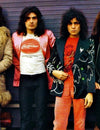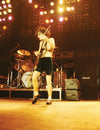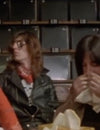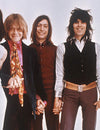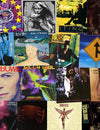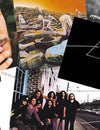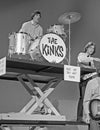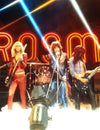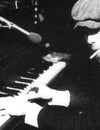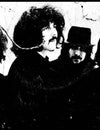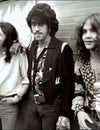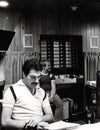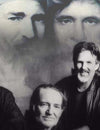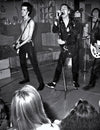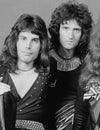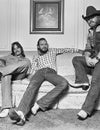
David Bowie: The Story Behind Space Oddity
An artist can find inspiration in virtually anything. There is no template to be dusted off and followed. Feelings of love are responsible for many classic songs. So are feelings of wonder and loss. Add drugs to the equation, and the willingness to express any and all emotion is brought to the forefront and new ground can be broken. In May 1968, David Bowie “went to a theater, stoned out his mind” to see Stanley Kubrick’s ‘2001: A Space Odyssey,’ and it left such a mark on him that he created one of the most complex songs he’d ever written.
‘Space Oddity’ was inspired by Kubrick’s 1968 masterpiece, a real-life breakup, and Bowie’s love of drugs. It’s now considered one of his best creations and still one of his most famous songs. After the commercial failure of his first album, he was challenged by his new manager, Kenneth Pitt, to create something new that would let audiences know how talented and inventive he was. Pitt decided a promotional film would help promote Bowie to a larger audience, so he commissioned one.
‘Love You till Tuesday’ is a thirty-minute promotional film that was shot in 1969, but wasn’t released until 1984 due to a lack of interest in it. It showcases nine performances with ‘Space Oddity’ the last song to be added. With Bowie’s popularity reaching its apex and VHS video becoming more popular, Polygram decided to release the film in May 1984. The version of ‘Space Oddity’ released on the film varied from the original demo of the song, and a new version of the song was recorded in June 1969 at London’s Trident Studios. It w originally written as a guitar song. The new sound, incorporating a Mellotron and Stylophone, was a departure from Bowie’s Victorian-era-inspired sound and brought him into the realm of psychedelic folk music inspired by the Bee Gees.
Meaning
Discussing the writing process in 1969, Bowie said:
“The publicity image of a spaceman at work is of an automaton rather than a human being ... and my Major Tom is nothing if not a human being. It came from a feeling of sadness about this aspect of the space thing, it has been dehumanized, so I wrote a song-farce about it, to try and relate science and human emotion. I suppose it's an antidote to space fever, really.”
‘Space Oddity’ tells the story of an astronaut named Major Tom, who is told by Ground Control that a malfunction has occurred in his spacecraft but Major Tom does not get the message because he either misses it or is in such awe of outer space he does not hear it. He remains in space "sitting in a tin can, far above the world,” preparing for his lonely death.
The Major Tom character was inspired by the main character in Kubrick’s ‘2001’ - Dr. David "Dave" Bowman. In the film, Dave is an astronaut who is sent on a mission to uncover the origin of a monolith found on the moon, assumed to have been left there by an extra-terrestrial intelligence. After a supercomputer aboard the ship - HAL 9000 - malfunctions and leaves Dave as the sole survivor on the ship, he realizes he must disconnect HAL if he wishes to escape the same fate as his crewmen. The end of the film shows Dave as a fetus, floating in an orb above the Earth, suggesting his rebirth. Bowie’s Tom character has appeared in two other hits: 1980’ ‘Ashes to Ashes,’ and 1996’s ‘Hallo Spaceboy.’
Bowie clarified misconceptions about the song’s origin during a 2003 interview with Performing Songwriter magazine:
"In England, it was always presumed that it was written about the space landing because it kind of came to prominence around the same time. But it actually wasn't. It was written because of going to see the film 2001, which I found amazing. I was out of my gourd anyway, I was very stoned when I went to see it, several times, and it was really a revelation to me. It got the song flowing. It was picked up by the British television and used as the background music for the landing itself. I'm sure they really weren't listening to the lyric at all (laughs). It wasn't a pleasant thing to juxtapose against a moon landing. Of course, I was overjoyed that they did. Obviously, some BBC official said, 'Oh, right then, that space song, Major Tom, blah blah blah, that'll be great.' 'Um, but he gets stranded in space, sir.' Nobody had the heart to tell the producer that."

Fanfare and Media Reception
Bowie’s epic was banned by BBC executives. It was deemed to be potentially insensitive in the event that the Apollo moon mission ended badly. The superstitious decision was cloaked in irony after a BBC team played the song as background music when the Apollo coverage was aired on BBC TV. The ban was lifted once the Apollo team returned safely and the song returned to public ears, in a big way: it became a top-five UK hit and has lasted for decades. In 1975, the song became a number-one hit in the UK. The BBC hasn’t held a grudge; Bowie was voted to be the fourth among Britain’s Greatest Living Icons by the BBC Culture Show public vote, just behind Sir Paul McCartney.
Elton John’s ‘Rocket Man’ is said to be inspired, in part, by Bowie’s epic track. In tribute to David Bowie after his death in January 2016, Elton performed a piano rendition that combined ‘Rocket Man’ with Bowie's ‘Space Oddity.’
Shortly after its release, ‘Space Oddity’ received some glowing reviews. Penny Valentine of Disc and Music Echo predicted the record was "going to knock back everyone senseless.” Chris Welch from Melody Maker wrote: "This Bee Geeian piece of music and poetry is beautifully written, sung, and performed. Strangely, it could be a hit and escalate Bowie to the top.” Welch’s prediction was accurate.









